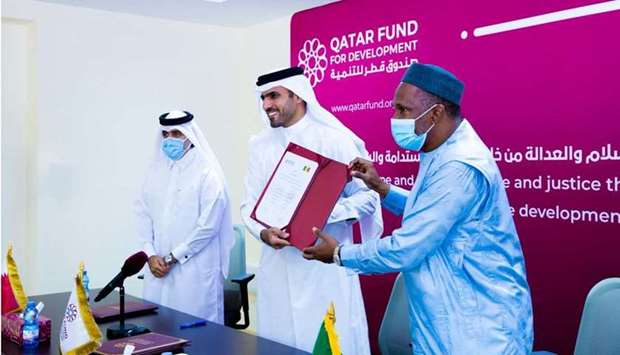PACETEMs (Programme d'acces a l'education pour tous les enfants au Mali/Access to Education for All Children in Mali) objective is the enrolment and retention of 596,597 OOSC throughout the country. PACETEM specifically seeks to reach OOSC with limited access to primary education, including children from nomadic communities, children in remote locations, overage children officially excluded children, and children with physical disabilities through the utilization of tested and effective strategies.
The PACETEM project, managed by the Education Development Center (EDC) and implemented via a consortium of international and national NGOs in collaboration with Malis Ministry of National Education, local governments and target communities, is working to scale up innovative and effective strategies already in practice. Each member of the consortium carries out initiatives in accordance with the needs of the local community. For example, project strategies may comprise: enrolling children who did not enroll at the appropriate age; creating single-classroom schools in communities with low-population densities; providing mobile schools for nomadic communities; integrating official primary curriculum into Koranic schools; and establishing accelerated-learning programmes for overage children. The project is funded through an innovative financing mechanism that combines grant and loan assistance to support OOSC access to education.
Marginalized children in Mali often face multiple barriers in accessing education, such as the lack availability of schools and teachers close to home, poverty, insecurity, low quality and relevance, or for their children to engage in economic activities to support the household. By addressing these barriers to education, the project aims to impact positively on the UN Sustainable Development Goal 4, "Ensuring fair and inclusive education for all and enhancing lifelong learning for all".
Director General of QFFD Khalifa bin Jassim Al Kuwari said, "It is our responsibility to ensure that young people are in a position to secure their future. To support out of school children in Mali, QFFD is contributing to the adaptation of infrastructure to meet the needs of physically impaired children, providing teacher training and school supplies to girls and disadvantaged households, building new schools and reintegrating children beyond the standard primary-school age."
CEO of the Education Above All Foundation Fahad Al Sulaiti, noted that : "Todays agreement between QFFD and Malis Ministry of National Education presents an important step in our joint global efforts to identify new ways for education financing to create lasting impacts, particularly for low-income countries that are the hardest hit by the global education funding crisis. With a special focus on supporting the most marginalized out of school children into quality primary education, including girls, children from remote or nomadic communities, and children with disabilities, we aim to increase school retention rates and ultimately raise social and economic prospects, for them and their communities."
Ambassador of Mali in Qatar, HE Cheick Ahmed Tidiany Diakite said, "Todays ceremony marks the culmination of the efforts made on both sides to sign the loan. Allow me to thank the Minister for his availability, the Director of Public Debt of Mali, the Director General of Qatar Fund for Development, the CEO of the EAA Foundation and his collaborators."

